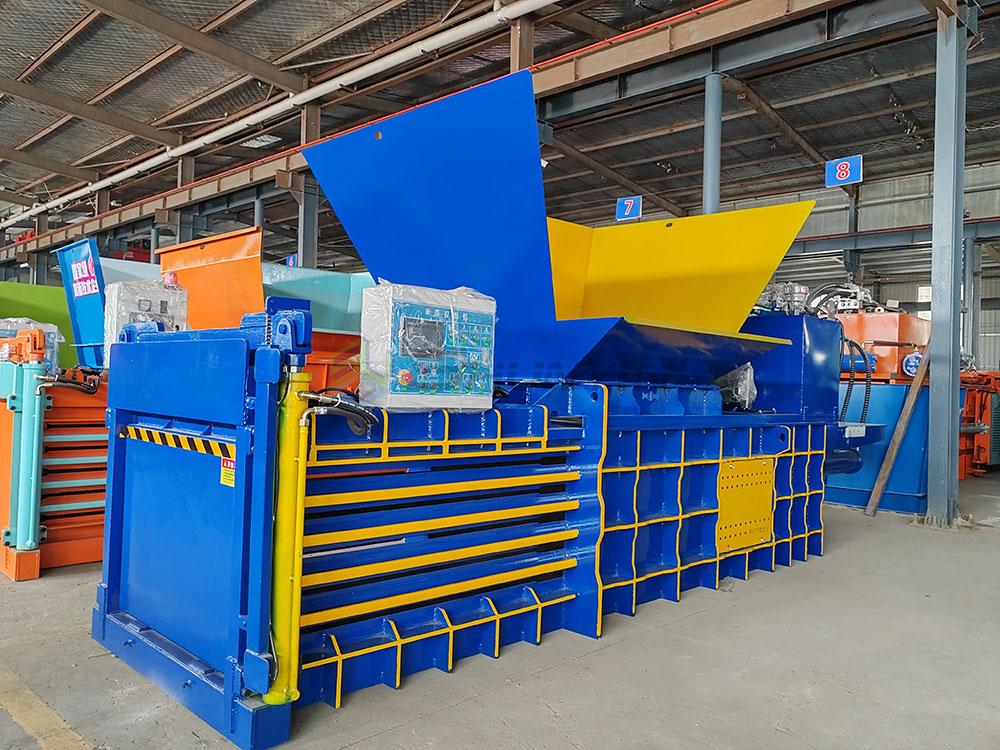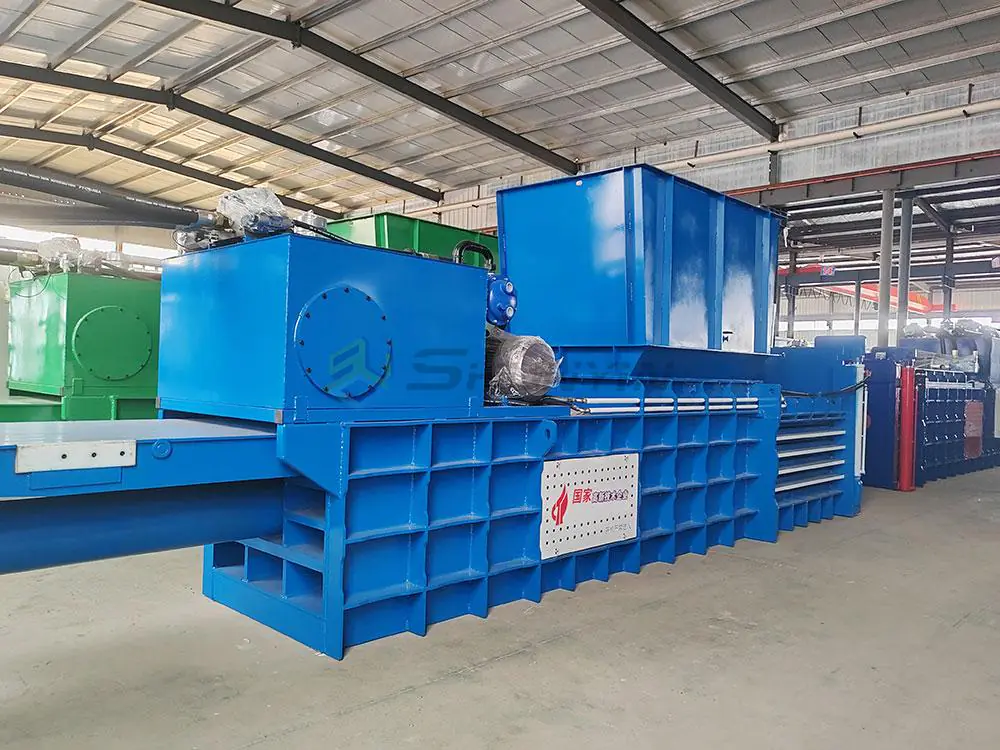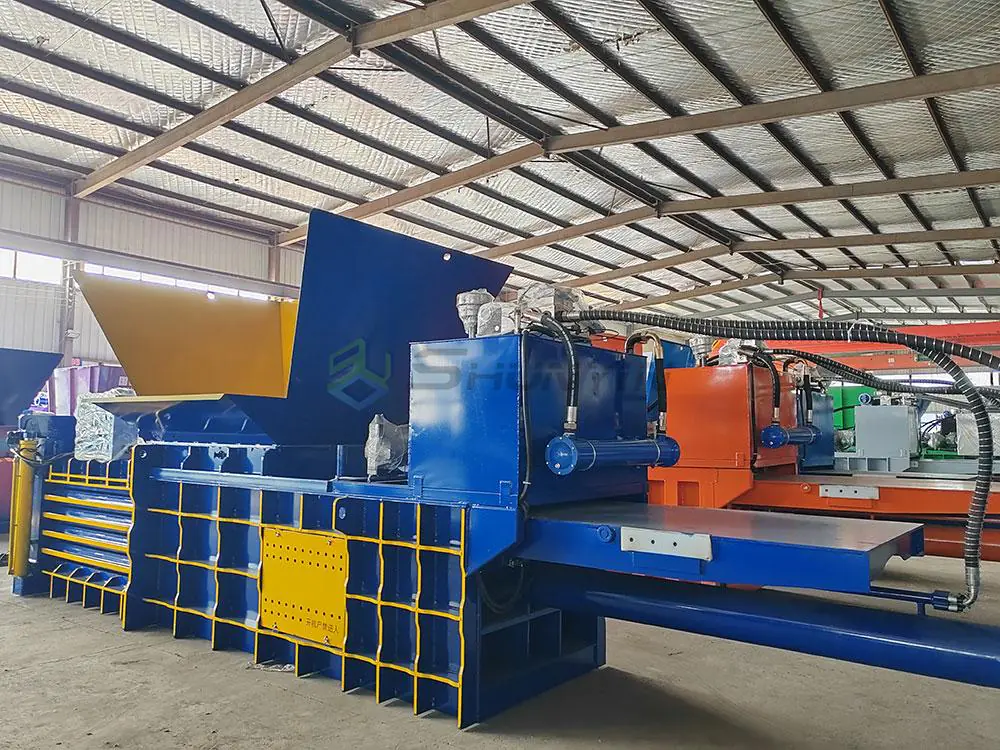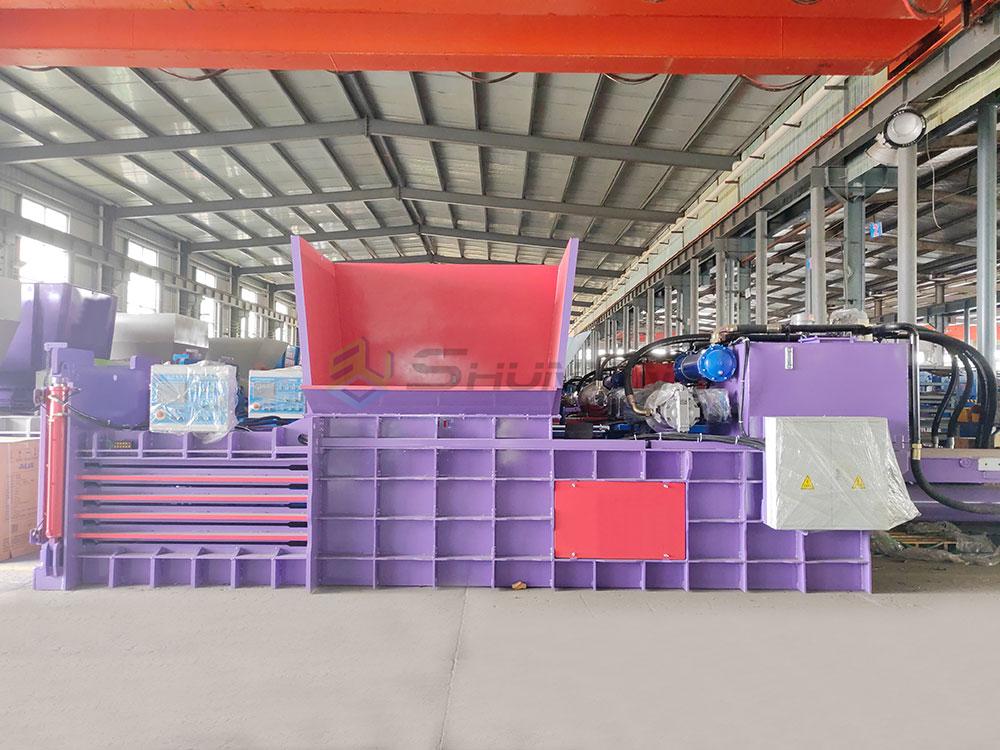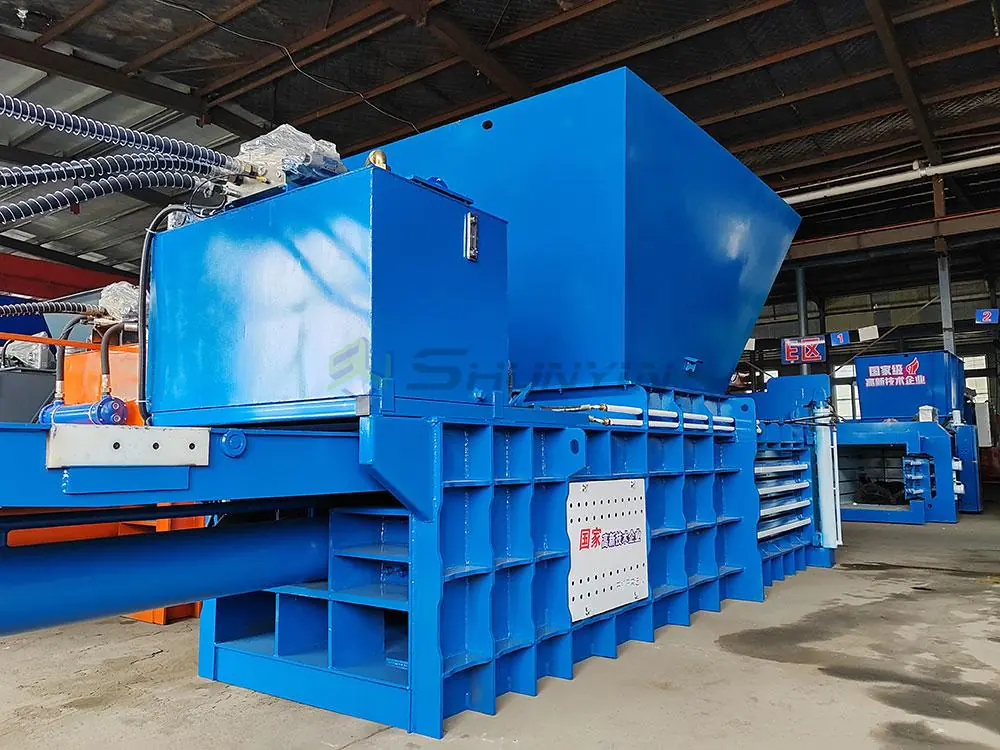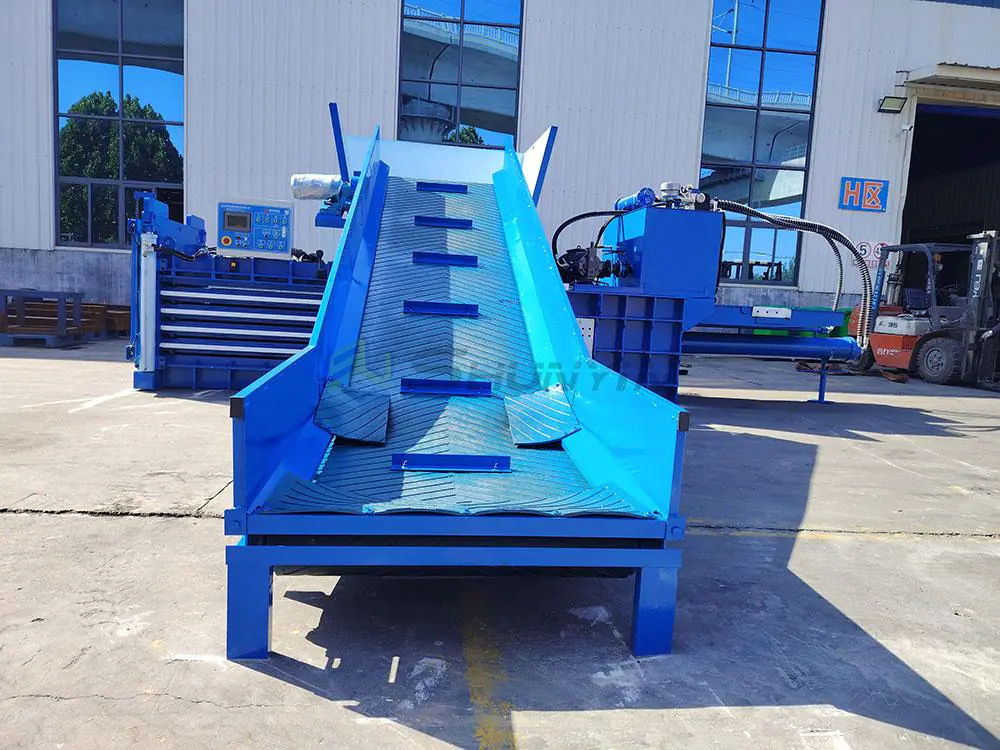
Enhancing productivity is a constant goal for businesses aiming to stay competitive. Horizontal hydraulic balers offer a powerful solution by streamlining waste management and material handling processes. By integrating these balers into your operations, you can achieve significant improvements in efficiency and cost-effectiveness.
Horizontal hydraulic balers improve productivity by efficiently compacting large volumes of waste, reducing storage space, and speeding up the recycling process. They streamline material handling, minimize labor costs, and reduce the frequency of waste disposal. The ability to create dense, uniform bales also lowers transportation costs, allowing your company to focus on core operations while improving waste management efficiency.
I remember the first time we incorporated a horizontal hydraulic baler into our facility. The immediate increase in efficiency and reduction in manual labor were impressive, transforming our daily operations for the better.
What are the benefits of baler machine?
Baler machines provide numerous advantages that can significantly enhance business operations across various industries.
Baler machines offer key benefits such as volume reduction, cost savings, improved storage efficiency, and enhanced recycling capabilities. These advantages contribute to more efficient waste management and operational excellence.

Volume Reduction
Baler machines compress waste materials, reducing their volume by up to 90%. This significant reduction allows businesses to handle larger quantities of waste in smaller spaces, optimizing storage and transportation.
Cost Savings
By minimizing the volume of waste, baler machines lower transportation and disposal costs. Fewer trips are needed to transport the same amount of waste, resulting in substantial savings over time.
Improved Storage Efficiency
Compressed bales take up less space, enabling better organization and utilization of storage areas. This efficiency is particularly beneficial for businesses with limited storage capacity.
Enhanced Recycling Capabilities
Baler machines facilitate the recycling process by producing uniform bales that are easier to handle and transport. This uniformity improves the efficiency of recycling operations and supports sustainability initiatives.
Environmental Benefits
Using baler machines reduces the environmental impact of waste by decreasing the amount sent to landfills and promoting recycling. This contributes to a more sustainable business model and enhances corporate social responsibility.
Dive Deeper: Operational Efficiency
Implementing baler machines can streamline waste management workflows, allowing businesses to allocate resources more effectively. Automated baling processes reduce manual labor and minimize the risk of errors, leading to more consistent and reliable operations.
What are balers used for in agriculture?
In the agricultural sector, balers play a crucial role in managing crop residues and other agricultural byproducts.
Balers in agriculture are used to compress and bundle crop residues such as hay, straw, and other plant materials into compact bales. This process facilitates easier handling, storage, and transportation, enhancing overall farm efficiency.

Efficient Handling of Crop Residues
Balers compress loose crop residues into dense bales, making them easier to handle and transport. This efficiency is essential for large-scale farming operations where managing vast quantities of plant material can be challenging.
Storage Optimization
Compact bales occupy less storage space, allowing farmers to maximize their storage facilities. This optimization is particularly beneficial during peak harvesting seasons when storage space is at a premium.
Protection of Crop Quality
Baling crop residues helps protect them from environmental factors such as moisture and pests. Properly baled materials maintain their quality, making them suitable for various uses, including animal feed and soil amendment.
Facilitating Transportation
Baler machines produce uniform bales that are easier to transport using standard farming equipment. This uniformity reduces transportation costs and improves logistics efficiency.
Supporting Sustainable Practices
By efficiently managing crop residues, balers support sustainable farming practices. Proper handling and storage of agricultural byproducts contribute to soil health and reduce the environmental impact of farming operations.
Dive Deeper: Impact on Farm Productivity
Implementing baler machines in agricultural operations can significantly boost productivity. By automating the baling process, farmers can save time and labor, allowing them to focus on other critical aspects of farm management. Additionally, the improved handling and storage of crop residues enhance overall farm efficiency and output.
What is the working principle of a pickup baler?
Understanding the working principle of a pickup baler is essential to maximize its effectiveness and productivity.
A pickup baler operates by automatically picking up loose materials from the ground and compressing them into bales. This automated process enhances efficiency by reducing manual labor and ensuring consistent bale formation.

Material Collection
Pickup balers are equipped with a pickup mechanism that gathers loose materials such as hay, straw, or crop residues from the field. This mechanism ensures that materials are collected evenly, preventing uneven bale formation.
Compression Process
Once the materials are collected, the baler compresses them into dense bales using hydraulic pressure. The consistent compression ensures uniform bale density and size, facilitating easier handling and transportation.
Bale Formation and Ejection
After compression, the baler ties the bale with wires or straps to maintain its shape. The finished bale is then ejected from the baler for removal and storage, ready for transportation or further processing.
Automation and Control
Modern pickup balers come with advanced control systems that automate the baling process. These systems allow operators to set specific parameters for bale size and density, ensuring consistent and high-quality bales every time.
Dive Deeper: Enhancing Efficiency with Pickup Balers
Pickup balers significantly enhance farm efficiency by automating the baling process. This automation reduces the need for manual labor, allowing farmers to manage larger areas and handle more materials with ease. Additionally, the consistent bale quality improves storage and transportation logistics, further boosting overall productivity.
What is a hydraulic baling machine used for?
Hydraulic baling machines are versatile tools used across various industries to manage and process different types of materials efficiently.
Hydraulic baling machines are used to compress and bind materials such as paper, plastics, metals, and agricultural residues into dense bales. This compression facilitates easier storage, transportation, and recycling, making these machines essential for efficient waste management and material handling.

Waste Management
Hydraulic baling machines are widely used in waste management to compress recyclable materials like paper, plastics, and metals. This compression reduces the volume of waste, making it easier to store and transport to recycling facilities.
Agricultural Applications
In agriculture, hydraulic balers are used to bale hay, straw, and other crop residues. These bales are easier to handle and transport, improving farm operations and reducing labor costs.
Industrial Uses
Industries use hydraulic balers to manage scrap materials and waste generated during manufacturing processes. By compressing these materials, industries can streamline their waste disposal processes and reduce environmental impact.
Recycling Centers
Recycling centers rely on hydraulic balers to process and compact recyclable materials. The uniform bales produced by these machines enhance the efficiency of recycling operations and support sustainable waste management practices.
Commercial Use
Retail stores and commercial establishments use hydraulic balers to manage packaging waste, such as cardboard boxes. Compressing these materials helps reduce storage space requirements and lowers transportation costs.
Dive Deeper: Versatility and Customization
Hydraulic baling machines offer remarkable versatility, allowing them to handle a wide range of materials with varying densities and sizes. Additionally, many balers come with customizable settings that enable businesses to adjust compression levels and bale sizes according to their specific needs. This adaptability makes hydraulic balers suitable for diverse applications, enhancing their utility and effectiveness in different operational contexts.
Conclusion
Horizontal hydraulic balers are transformative tools that can significantly improve business productivity by optimizing waste management and material handling processes. The benefits of baler machines, their versatile applications in agriculture and industry, and their efficient working principles make them indispensable for modern businesses. By implementing best practices and leveraging the latest technological innovations, companies can enhance their operational efficiency, reduce costs, and promote sustainable practices. Investing in horizontal hydraulic balers not only streamlines waste management but also supports long-term business growth and environmental responsibility.


